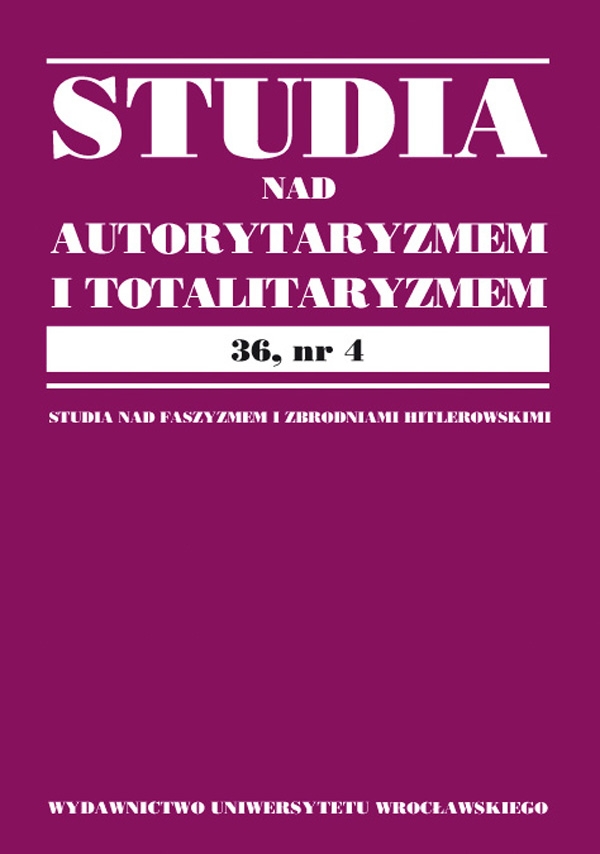

Artykuły

ELEMENTS OF THE USTAŠE TRADITION AND THEIR SIGNIFICANCE IN THE DEVELOPMENT OF CROATIAN NATIONAL IDENTITY AFTER THE BREAK-UP OF THE SOCIALIST FEDERAL REPUBLIC OF YUGOSLAVIA
The paper is an attempt to analyse elements of the Ustaše tradition in the political life of today’s Croatia. Despite the fact that over 50 years have passed since the collapse of the Independent State of Croatia NDH, established on the initiative of Italy and Germany, the spirit of Ante Pavelić and the historical conflict between the Ustaše and the Chetniks are still present in the country’s political life and popular culture. The renaissance of nationalism was a legacy of rapid transformation and break-up of the Socialist Federal Republic of Yugoslavia; in addition, it dominated the political life during the quasi-authoritarian rule of the first president of Croatia, Franjo Tuđman. The coat of arms, currency and language policy adopted at the time are often associated with — not always rightly – with the ideology of the NDH. What also contributed to this was Tuđman’s historical revisionism, his authoritarian personality, anti-Serbian and anti-Semitic pronouncements as well as an equivocal attitude of the political elites, which — despite aspirations to EU membership — were unable to bring themselves to condemn the ideological legacy of Ante Pavelić’s regime.